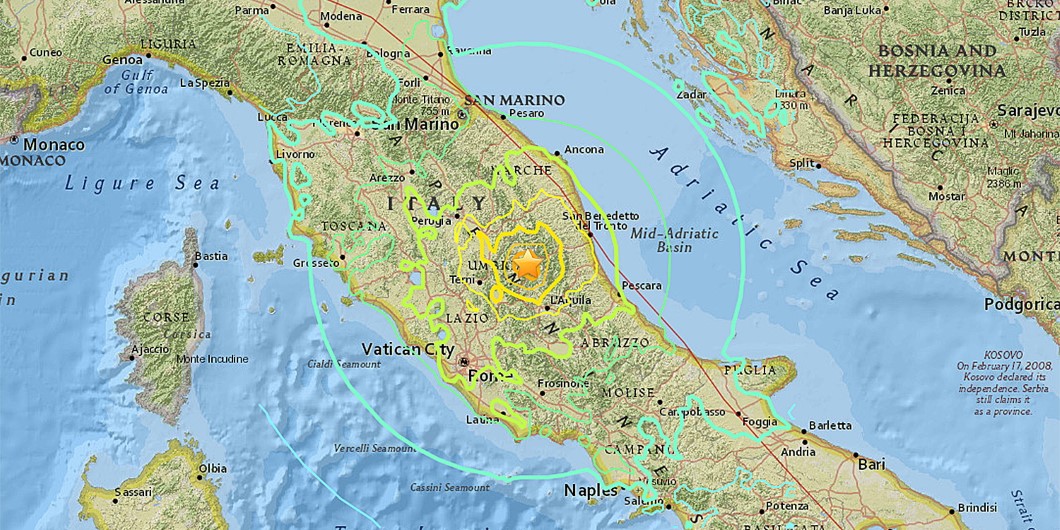Central Italy registered 30% decrease in tourist arrivals in the regions regularly hit by earthquakes. Even areas not affected by the earthquake, like Spoleto, are also registering considerable falls in tourism.
Tourism in Central Italy has dropped by 30% with respect to the number of arrivals. The earthquakes, tens of thousands per year, though small in size, dissuaded both Italians and foreigners from choosing to spend their holiday in Central Italy. Even those areas that are not directly affected by the earthquakes feel the impact.
Andrea Sfacia, president of Fedeturismo Umbria, speaks of a 20-30% drop everywhere “from the beginning of the year”. Perugia, Orvieto, and Assisi are also affected, despite not being a part of the crater. But there is a positive signal highlighted by Sfacia. According to his words, in August the numbers were “seemingly getting closer to normality”.
For example, Norcia suffered a fall in tourism activity due to strong reduction of agile structures. The decline of visits in Valnerina also affects the neighboring areas, while the area itself is intact, as is Spoleto.
The testimonials of hoteliers and exhibitors of Spoleto are all unanimous and speak of a fall. Tommaso Barbanera, president of Confcommercialo Spoleto, noted that since last November “many tour operators have removed Umbria and Central Italy from their destinations”.
The hope is that the new year for tourism in Central Italy. It should be noted that Spoleto came from a 2016 more than rosy. The region profited from the success of the tv series Don Matteo, which is set here. The hope expressed by Federalberghi Spoleto head, Carla Contenti, is that “with the launch of the new season, the interest in the city will be revived”. Thanks to the tv series the region had a real boom for some years.

Another factor that should lead to an improvement of the situation are obviously finances allocated for reparations. The European Parliament has approved to allocate 1.2 billion euros for Italy’s post-earthquake reconstruction which should boost tourism in Central Italy as well. This is the highest figure ever allocated by this “account”. The Italian government has estimated a total 21.8 billion in damages and European funds will cover about 6% of reconstruction costs.
There is also one last important thing to point out, which supports the optimism. And this is due to foreigners. According to the mayor Fabrizio Cardarelli “in January the fall in arrivals was 40%, while in July it was halved, compared to 2016. “I say it in a low voice, but there is room for optimism,” the mayor concluded.